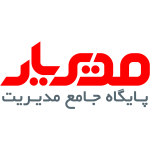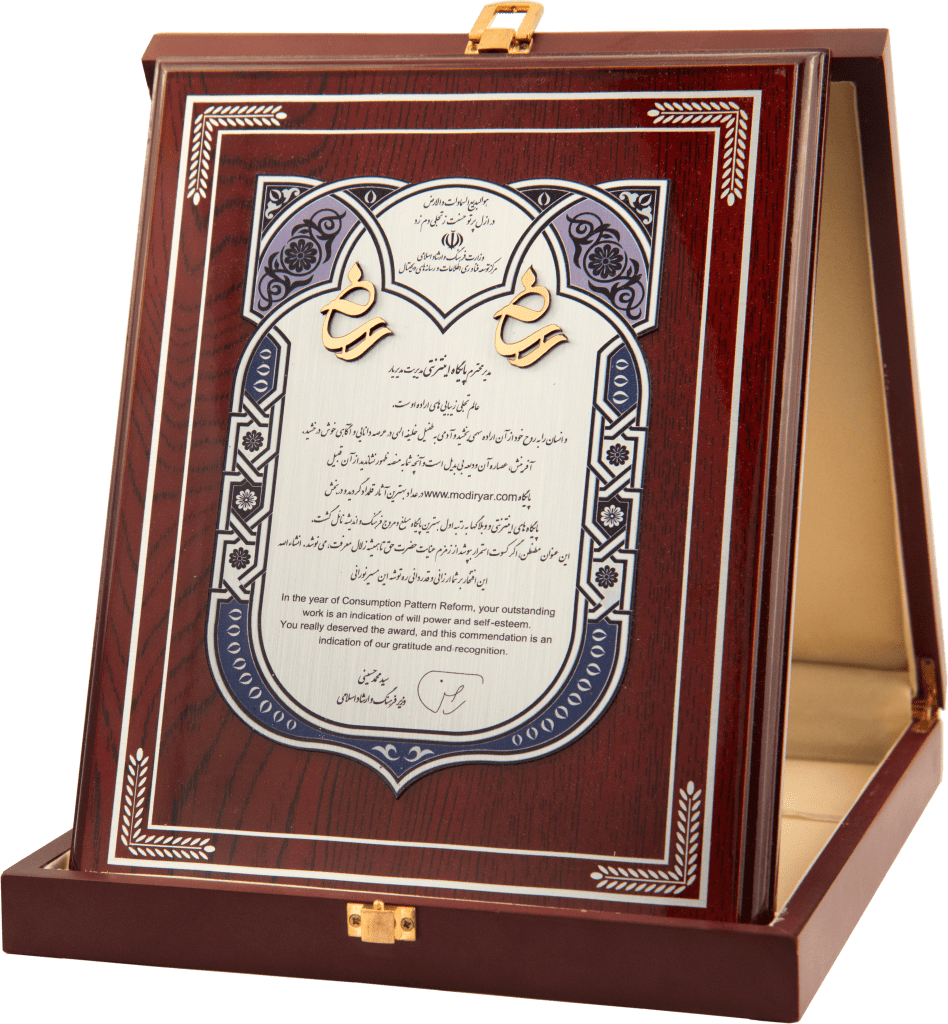كلمه لاتين سياست (Policy) ريشه كهن يوناني دارد . به اعتبار معني كلمه (مراقبت از يك كار) را سياست مي گويند . در فرهنگ لغت فارسي سياست به معناي ادارهكردنامورمملكت ، مراقبتامورداخليوخارجي كشور ، اصلاح امور خلق رعيت داري و مردم داري است . مفهوم سياست در فرهنگ لغت و بستر بدينگونه تعريف شده است : «براي جهت دادن به تصميمات امروز و آينده از ميان تعداد زيادي گزينه انتخاب يك راه يا طرز رفتاري مشخص و يا يك طرح كلي درازمدت كه اهداف كلي و روشهاي قابل قبول» را بتواند دربربگيرد .
سياست در حيطه مديريت سازمان ، در معناي يك سري اصول و قواعد است كه نشان دهنده راه براي مديران در اتخاذ تصميم خواهد بود . اين اصول در تصميماتي كه مديران مي گيرند و در فعاليتهايي كه انجام ميدهند راه را نشان مي دهد و يك طرح كلي را براي رسيدن به اهداف تعيين شده فراهم مي سازند . بدينگونه وقتي كه سياست مشخص گرديد به مديران يك انتخاب ترجيحي مي دهد ، مثلا ياد مي دهد كه هنگام رويارويي با وضعيتي مانند X نه به صورت B , A ، بلكه مانند C رفتار كن و بدينگونه يك ترجيح ، به ميان گذاشته مي شود .
اما سياست را با مقررات يا دستورالعمل كه درهريك از موقعيتها بايد رعايت شود نبايد درآميخت . مقررات درمقابل وضعيت معين ، چگونگي حركت را به طور قطعي بيان مي كنند و جايي براي مدير كه از انعطاف خويش استفاده كند باقي نمي گذارند . اما سياست ، نشاندهنده راه براي مديران در تصميم گيري است ، مانند : صبح رأس ساعت 8 سركار حاضر شدن يك دستورالعمل يا مقررات است . ولي اينكه مدير تداركات ، خريد موادخام تا سقف صدميليون ريال را بدون اخذ موافقت مدير بالادست ميتواند انجام دهد ، يك سياست است . مدير براي مصارف زير سقف صدميليون ريال به مقام بالاتر مراجعه نمي كند .
دراينجا بايد يادآور شويم سياستها ، قبل از هرچيز درباره تحقق بخشيدن اهداف سازمان درهرسطح ، انتخاب ابزاري كه مورد استفاده قرار خواهد گرقت و طرز حركتي كه به ميان گذاشته خواهد شد ، مربوط است همچنين سياستها براي اهداف و ابزار نيز حدود و مرزهايي بنا مي كند . اين مرزها ، هنگام تصميم گيري مديران درخصوص وضعيتهايي كه باآن مواجه مي گردند ، به آنان ياري مي دهد ، براي مثال ، هنگام تصميم گيري خريد از سه كيفيت خيلي خوب ، سياست انتخاب پايين ترين قيمت ، يعني رده بندي پيشنهادها به لحاظ تقدم كيفيت ، از سه كالايي كه در سه رده اول قرار دارند هركدام پايين ترين قيمت را دارد بايد خريداري شود . براي كالاها سرويس درنظر گرفته نمي شود ، اين يك دستورالعمل در تصميم است و درباره خريد كالا براي هروضعيت قابل قبول است .
سياستها ، درداخل سازمان درهرسطح سازماني قرار مي گيرند و از سياستهاي اصلي شركت ، سيساتهاي قسمتها ، حيطه هاي اجرايي گرفته تا كوچكترين واحدها به ترتيب پشت سرهم قرار مي گيرند . جدا از اين ، سياستها ميتوانند عملكردي هم باشند و يا براي يك پروژه بخصوصي مي توانند انتخاب شوند .
از طرف ديگر سياستها ، به مشكلاتي كه زود به زود ديده مي شود و وضعيتهايي كه تكرار مي گردد نيز مربوط است . سياست در مقابل چنين وضعيتي چه بايد كرد را تثبيت نموده در مقابل وضعيتهاي مشابه تصميم گيري همانند را فراهم مي سازد ، بدين ترتيب سياستها در داخل خود استحكام (ثبات و قاطعيت) و بي طرفي بين اشخاص را حاكم مي كنند ، براي مثال سياست پرسنلي درباره دادن مرخصي و حقوق به هنگام مرخصي سالانه و بيماريها ، به هركس در داخل سازمان همانند اجرا مي شود و براي هرشخص و هر رويداد تصميم گيري جداگانه اي را لازم نمي داند .
سياستها به خاطر زمينه سازي براي از قبل انديشيدن و تجزيه و تحليل كردن در وضعيتهاي معين مانع تكرار گشته و ساختار يكپارچه اي را ارائه مي دهند . بعلاوه به اين خاطر كه مي توانند رفتار مديران را به صورت قابل پيش بيني درآورند ، انتقال اختيار را به سطوح پايين آسان كرده و بدين ترتيب اثربخشي مديران سطوح بالا را افزايش مي دهند .
بعبارت كوتاه سياستها ، نهاد بودن مؤسسات و در نتيجه بوجود آوردن عرف و عادتهاي مختص به خودشان را براي آنها تأمين مي كند . بدين لحاظ سياستها ، يك ويژگي حاكم برامور اجرايي مؤسسات را داراست . اصول در درك ، انتخاب و بيان كلي به عنوان راهنماي تصميم گيري و يا نشاندهنده راه درانديشيدن و آغاز حركت به شمار مي آيد . اين اصول ضرورت مطلق ندارد كه به شكل يك توضيح ارائه گردد . بيشتر اوقات طرز رفتار يك مدير ، درحالي كه به صورت نوشته نيست ولي مي تواند سياست مشخصي را انعكاس دهد .
The word “policy” can be used to cover matters ranging from high order strategy to administrative detail. In DECS, ‘policy’ can encompass a position, intention or plan on any issue where the government or the department needs to take action.
Policy can mean:
* The art, study, or practice of government or administration; the conduct of public affairs; political science. [Source: Oxford English Dictionary], or
* A plan of action, usually based on certain principles, decided on by a body or individual, or
* A principle or set of principles on which to base decisions, or
* A course of conduct to be followed [Source: Chambers English Dictionary]
According to a dictionary definition, policy is “any course of action followed primarily because it is expedient or advantages in a material sense”. When put into a political theme, this definition would read: ‘Public Policy is a concept (usually in a written document), whereby the government or a political party will determine decisions, actions and other matters that will prove advantages to society in general’.
Another possible way to look at policies, particularly the governments, is to think of them as the principle (be it values, interests and resources) that underlines the actions that will take place to solve public issues. This maybe administered through state or federal action such as legislation, regulations and administrative practices.
The starting point for anyone who is producing policies is to realise that there needn’t always be consistency in them. This is mainly because the values of society are continuously changing, and policies being the representation of society’s preferences and ideals, must change with them. It is at this broad level that policy becomes a complex interplay of “social and economic decisions, prevailing ideas, institutions and individuals, technical and analytical procedures, and general theories about the way policy is made”(Concept by Hawker, Smith and Weller). All of these factors when taken into account, will determine how the new policy will effect the following:
Private Citizens
Companies
Corporations
Associations
There is no right or wrong policy. But the foremost will be one that addresses the masses, and reflects their social values.
Considering that public policy is an action taken by the government that ultimately effects the public, it has been recognized that even when an area of activity is left in private hands, the very act of it being left alone can be viewed as a deliberate policy of the authorities. This could possibly be because the general societies needs did not need to be altered, or because the body that the activity was delegated to will make the necessary changes in the place of the government; possibly because they understand social issues better because of their standing within society, for example local councils.
Many factors influence why a policy is created. Lobby groups, political parties, single issue coalitions, industrial councils, unions and pressure groups play a very active role in this, mainly because their vast size through social support which allows them to contest issues. For a government not to listen and then act on their requests would almost mean certain suicide. This is especially true around election time, when the government also makes a lot of policies that will be looked upon favourable by the voters, and thus help the government in their plight to be re-elected. But it must also be acknowledged, that not all large groups such as unions, are given whatever they want (as we saw with the transport union earlier on this year during the Grand Prix) especially if it will be a burden to the rest of society.
In general, the purpose of government is to add value to the lives of the people it serves, and through good policy making, this can be achieved. Policies should express and embody society’s needs and values, and this is achieved through the comprehensive use of politics involving cooperation from groups outside the government body.








